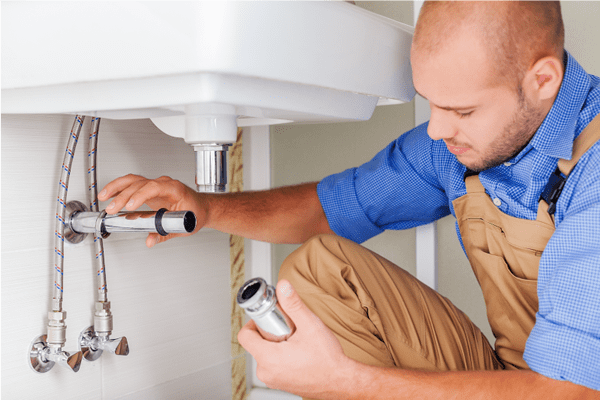Dealing with a clogged drain can be a major headache for homeowners. Whether it's a backed-up sink, shower, or toilet, a clogged drain can disrupt your daily routine and cause a mess in your home. In emergencies like these, knowing how to deal with the situation quickly and effectively can save you time, money, and frustration. This comprehensive guide provides you with essential tips for emergency drain cleaning that every homeowner should know.
Identifying the Problem
Before you start with any emergency drain cleaning procedures, it's crucial to identify the source of the clog. This will help you determine the most effective way to remove the blockage and prevent it from reoccurring. Here are some common signs that indicate you have a clogged drain:
- Water draining slowly or not draining at all
- Unpleasant odors coming from the drain
- Gurgling sounds coming from the pipes
- Water backing up into other drains
Tools You May Need:
- Plunger
- Plumbing snake (also known as a drain auger)
- Baking soda and vinegar
- Boiling water
- Bucket
- Rubber gloves
Using a Plunger
A plunger is a simple yet effective tool for clearing minor clogs in sinks, toilets, and shower drains. Here's how you can use a plunger to unclog a drain:
- Fill the sink or tub with enough water to cover the plunger.
- Place the plunger over the drain and ensure a tight seal.
- Push and pull the plunger in a rapid motion for about 30 seconds.
- Repeat the process a few times until the water starts draining again.
Tips for Using a Plunger:
- Make sure the plunger cup is fully submerged in water to create a seal.
- Use a plunger specifically designed for sinks or toilets for better results.
- Apply petroleum jelly to the rim of the plunger to improve suction.
Using a Plumbing Snake
If a plunger doesn't do the trick, you may need to use a plumbing snake to reach deeper into the pipe and dislodge the clog. Follow these steps to use a plumbing snake:
- Insert the end of the plumbing snake into the drain opening.
- Turn the handle clockwise to extend the snake further into the pipe.
- Once you feel resistance, rotate the snake to break up the clog.
- Continue feeding the snake into the pipe until the blockage is cleared.
- Rinse the drain with hot water to remove any remaining debris.
Preventative Measures:
- Avoid pouring grease, oil, or coffee grounds down the drain.
- Use a hair strainer in the shower to catch hair and prevent blockages.
- Flush drains regularly with hot water to wash away buildup.
Using Natural Remedies
If you prefer a chemical-free approach to drain cleaning, you can try using common household items like baking soda and vinegar. Here's how to use this natural remedy:
- Pour a pot of boiling water down the drain to loosen the clog.
- Follow with a mixture of 1/2 cup baking soda and 1/2 cup vinegar.
- Cover the drain and let it sit for 15-30 minutes.
- Flush the drain with hot water to remove the dissolved debris.
Benefits of Natural Remedies:
- Gentle on pipes compared to harsh chemical drain cleaners.
- Environmentally friendly and safe for septic systems.
- Effective in breaking down organic matter and grease buildup.
When to Call a Professional
If you've tried the DIY methods mentioned above and still can't clear the clog, it may be time to call a professional plumber. Here are some signs that indicate you need professional help:
- Multiple drains in your home are clogged simultaneously.
- The clog is located deep within the plumbing system.
- You've tried DIY methods multiple times without success.
- There are strange odors or sewage backup in your home.
Remember that attempting to dislodge a stubborn clog on your own could potentially damage your pipes and lead to costly repairs. A professional plumber has the expertise and specialized tools to safely and effectively clear even the toughest blockages.
By following these emergency drain cleaning tips, you can handle common clogs quickly and prevent them from escalating into more serious plumbing issues. Remember to exercise caution when using tools or chemicals, and don't hesitate to seek professional help if needed. A proactive approach to drain maintenance can help keep your home's plumbing system running smoothly.
